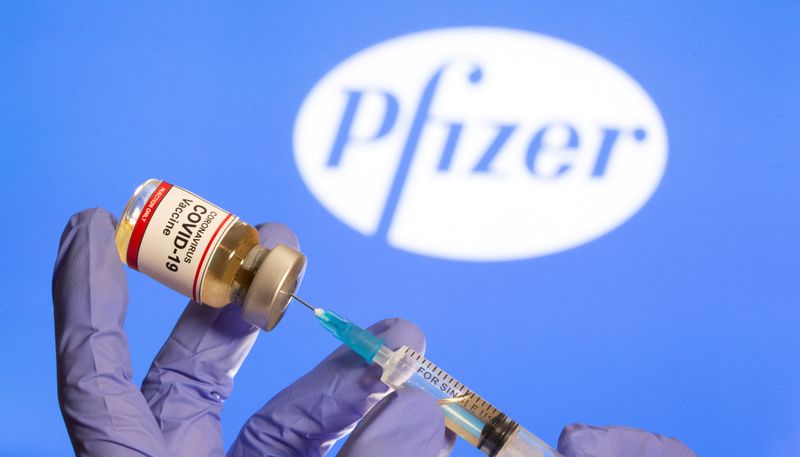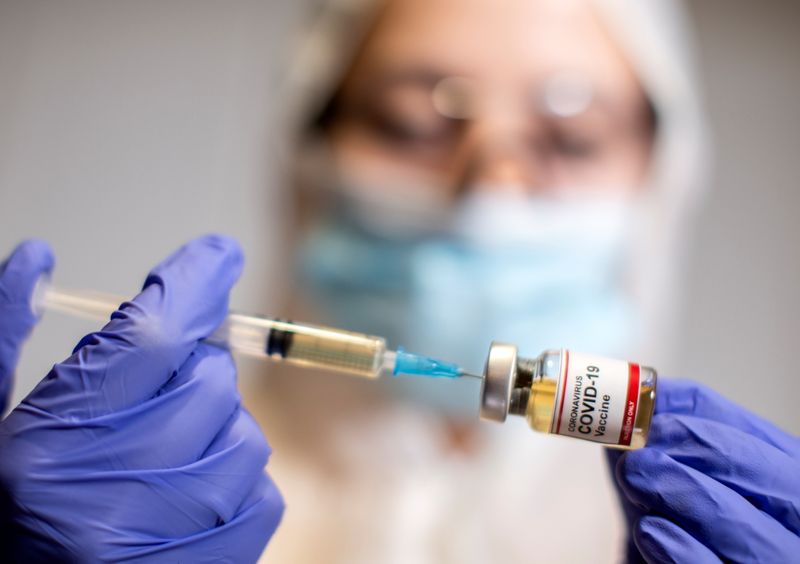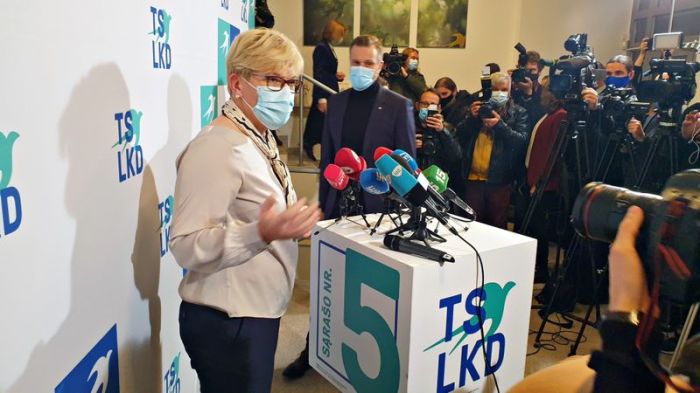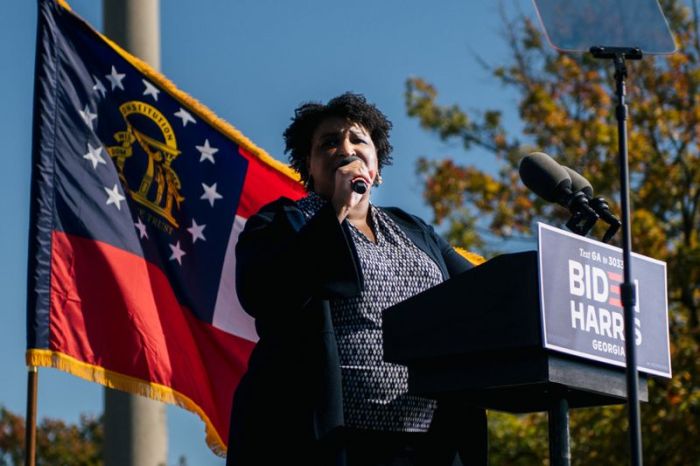SYDNEY/NEW YORK (Reuters) – News of an effective vaccine against the novel coronavirus is fueling bets that a global economic recovery will buoy wide swaths of the market that have struggled under nearly nine months of the COVID-19 pandemic.
Pfizer Inc <PFE.N> said on Monday its experimental COVID-19 vaccine was more than 90% effective, a potentially major victory in the fight against a pandemic that has killed more than a million people, battered the world’s economy and upended daily life.
Pfizer and its German partner BioNTech SE expect to seek U.S. authorization this month for emergency use of the vaccine, raising the possibility of a regulatory decision as soon as December.
Investors piled into banks stocks, airlines and other economically-sensitive companies that had been battered by months of coronavirus-led lockdowns and travel bans, pushing major U.S. stock indexes to fresh record highs, while havens like gold and the Japanese yen sold off and the U.S. Treasury yield curve steepened.
For months, many investors viewed the development of an effective vaccine against COVID-19, which has killed 1.2 million people globally, as the most important catalyst for healing the global economy and bringing about the next major shift in financial markets.
The prospects of a working vaccine sometime in the next few months could force investors to reevaluate a range of recent bets, from how big of a fiscal stimulus lawmakers may need to provide to whether the Federal Reserve will keep interest rates near historic lows for as long as previously expected.
It may also dent the allure of the big technology and momentum stocks, whose revenues have proven durable during the pandemic. Some of those huge stocks, such as Amazon.com <AMZN.O>, were underperforming on Monday.
“I think this really takes two big uncertainties – the health impact of COVID and the economic impact of COVID – and creates a pathway now that I think investors can see to progress and to the restoration of our health and the economy,” said Jack Ablin, chief investment officer at Cresset Capital Management.
To be sure, obstacles remain before achieving broad protection against the coronavirus.
Pfizer is waiting for more complete safety data before seeking emergency U.S. approval for the vaccine. Should the vaccine be authorized, logistical challenges potentially could undermine distribution while many Americans carry skepticism about vaccines that could prevent widespread inoculation.
“There’s a long road ahead still,” said Nigel Green, the chief executive of deVere Group, in an note to investors. “I would urge investors to remain optimistically cautious and avoid the ‘buy everything’ mindset.”
Investors have anticipated that an effective vaccine could be a catalyst for industries that have been crippled by economic shutdowns designed to control the coronavirus pandemic. Those include airlines, cruise ships, hotels, casinos, all of which were surging on Monday, in addition to economically-sensitive sectors such as energy, financials and industrials.
Many of those groups fall into the “value” segment of the stock market, which had significantly lagged its “growth” counterparts this year. On Monday, that trend ran in reverse, with the Russell 1000 value index <.RLV> recently up over 5%, while the Russell 1000 growth index <.RLG> gaining only 0.5%.
Paul Nolte, portfolio manager at Kingsview Investment Management in Chicago, has in recent months been buying the iShares Russell 1000 Value ETF <IWD.P> while reducing exposure to the Technology Selector Sector SPDR Fund <XLK.P>.
“Technology has become the de facto, stay-at-home conservative play,” Nolte said. If the vaccine works, “there’s the opportunity at least for people getting together again, and that is beneficial to a lot of those industries that have suffered through the last six months or so.”
Past rebounds in value have often come at the expense of momentum stocks, according to research from Solomon Tadesse, head of quantitative equities strategy for North America at Societe Generale.
One such move came during a three-month period in 2009, when value stocks notched a 25% gain while momentum names lost about 30%, Tadesse said.
Positive vaccine news, along with a globally synchronized economic expansion and possible legislative gridlock stemming from the U.S. election, “should mark a breakout point for Value stocks, which have been beaten down due to COVID crisis,” JPMorgan strategists wrote in a note Monday.
Brian Jacobsen, senior investment strategist at Wells Fargo Asset Management in Wisconsin, said ahead of the vaccine news that industrials offered broad exposure to a rebound in confidence in areas from building products to aviation.
Some global investors had also set up plays before Monday that would benefit from a potential shift in market leadership that a vaccine could bring.
Shinji Naito at Japan’s SPARX Asset Management, which has $12 billion under management, hopes a vaccine could trigger a payoff from shorts in stocks pumped up by the pandemic, such as some technology firms, while helping long investments such as realtor Tokyo Tatemono <8804.T>, he said before Monday’s news.
(Reporting by Tom Westbrook in Singapore and Elizabeth Howcroft in London and Lewis Krauskopf in New York, writing by Ira Iosebashvili; Editing by Vidya Ranganathan, Sam Holmes and Edward Tobin)

























